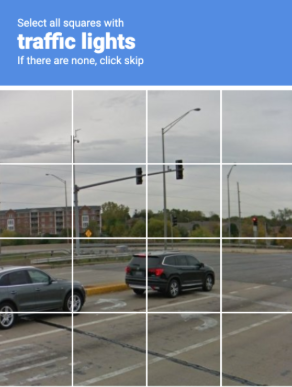The Safety Neurosis Trap: How reCAPTCHA Symbolises Our Flawed Obsession with Security
- Nick Hague and Paul Hague
- Jul 31, 2025
- 2 min read
Have you ever tried to log into a website, only to be stopped by an image puzzle—broken into squares—demanding you identify buses, traffic lights, or motorcycles? This software, called reCAPTCHA, is owned by Google and is designed to block bots from overwhelming websites. But for humans, it can be an exercise in frustration.

Despite its intent, reCAPTCHA is far from perfect. Users frequently find themselves trapped in an endless loop, clicking squares only to be presented with another challenge, as if their humanity is in doubt. In fact, a study estimated that humans waste over 800 million hours per year solving these puzzles—essentially providing free labour to train AI. The psychological toll is real: rage, despair, and a sense of powerlessness are common reactions.
The Illusion of Safety
reCAPTCHA’s flaws go beyond mere annoyance:
Accessibility Failures: Blind or visually impaired users are often locked out entirely.
Privacy Concerns: The system tracks user behaviour, raising GDPR and anonymity issues.
Bots Still Win: Ironically, sophisticated AI can bypass these checks, while real humans struggle.
This obsession with "absolute safety" mirrors broader societal trends. We close entire roads for minor pavement repairs, over-engineer playgrounds to eliminate every conceivable risk, and insist on driving kids to school rather than letting them walk—despite evidence that such hyper-caution may do more harm than good.
A Call for Balance
This isn’t an argument for recklessness. It’s a plea to recognize when security measures stop protecting and start obstructing. Just as reCAPTCHA’s endless puzzles frustrate more than they safeguard, our cultural neurosis around safety often prioritises fear over function.
The question isn’t whether we should be safe—it’s whether we’ve lost the ability to weigh real risks against reasonable solutions. If even Google’s best security tool is flawed, perhaps it’s time to rethink our approach—online and offline—before frustration becomes the default state of modern life.



